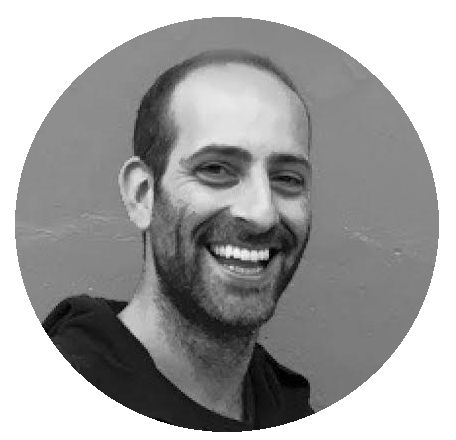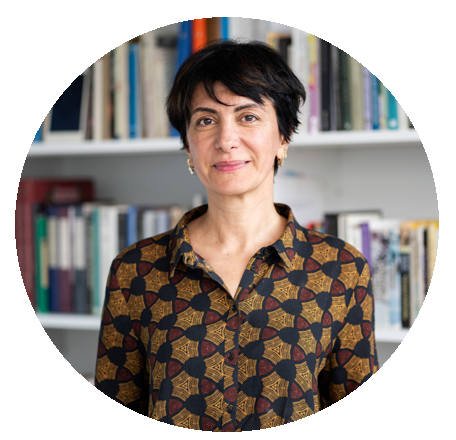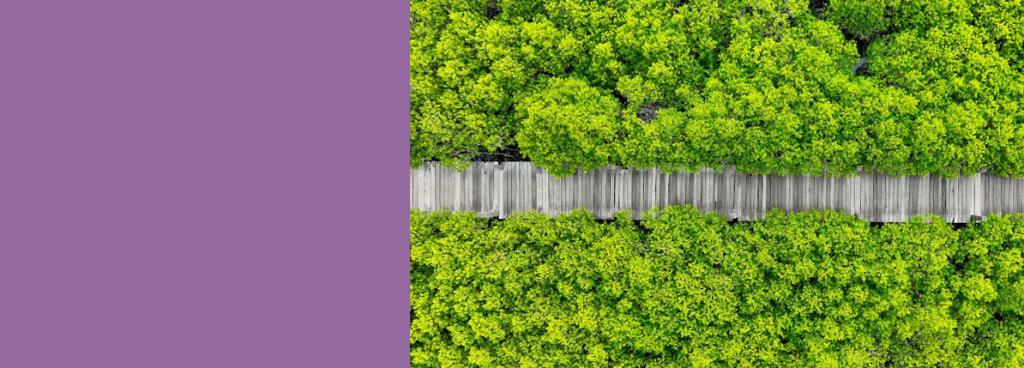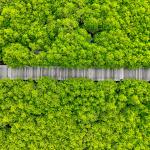Ecologies of Occupation: From Palestine to Kurdistan
Ecologies of Siege
What histories lie behind the apocalyptic landscapes of genocidal violence in the besieged Gaza Strip? What are the threads that hold fragments of land and life together in the face of imperialist forces seeking to erase Palestinian existence? This contribution introduces the term ecologies of siege as an analytical tool for exploring the relationships that link genocidal violence, lived environments, and anticolonial resistance.
Thinking with Gaza, it examines how ecologies of siege are constructed and maintained in ways that attempt to conceal the history, nature and resistance of their own production. Ecologies of siege appear here as haunted places where land, sea, air, bodies and infrastructures bear witness to and embody the traces and military violence of colonial capitalism.
In exploring the production of siege and its corollary, the politics of uninhabitability, the contribution foregrounds the targeting of indigenous infrastructures of social and biological reproduction. At the same time, it explores how ecologies of siege function as spatial repertoires where practices of life-making and emancipatory relations are enacted and revealed.
In the current historical conjuncture, the essay hopes to challenge the colonial imaginaries and practices that obscure daily realities on the ground and pave the way for the rationalisation of mass violence. It also aims to convey a critical understanding of political ecologies that can inform emancipatory futures, to besiege the siege in Palestine and beyond.
About the speaker

Omar Jabary Salamanca is a writer, teacher, organizer and research fellow based in the Department of Conflict and Development at Ghent University. Trained as a geographer, his work is concerned with the entanglements between space, society, technology, and environment, particularly in the Middle East. He is also interested in anticolonial histories and circulations of visual and material culture. Before rejoining Ghent University, Omar was a FNRS Research Fellow with Research and Studies in International Relations and the co-director of the Observatory of the Arab and Muslims Worlds in the House of Human Sciences at the Université Libre de Bruxelles.
He was also a Global Marie Curie Fellow in the Department of Middle Eastern, South Asian, and African Studies at Columbia University .
Omar is in the editorial board of Arab Urbanism and Jadaliyya Cities, and in the international advisory board of Antipode and ACME. He is also a founding member of The Kitchen collective and the Eye On Palestine Arts and Film Festival, and served for ten years in the steering board of the International Critical Geographies Group.
Decolonial Ecologies
Cultivating life amidst war can serve as an act of resistance and decolonial care. It signifies a refusal to allow destruction to have the final say.
The low-intensity war between the Kurdistan Workers' Party (PKK) and the Turkish state has targeted not only Kurdish insurgents but entire communities, resulting in erased villages, depopulated countryside, and urban neighbourhoods transformed into sites of destruction and redevelopment.
The aftermath of the 2015–2016 urban war in Diyarbakır (Amed, Dikranagert) intensified these changes, as sieges, forced displacements, and militarization became intertwined with urban renewal projects that commodified land and reshaped daily life. These cycles of catastrophe—stretching from the Armenian genocide to the mass displacements of the 1990s and the recent urban destruction—are deeply interconnected.
In places like Amed, where war and displacement have left profound scars, people cultivate life by holding onto their land and refusing to sever ties with the orchards, gardens, and rivers that embody their histories. This often involves collaboration with refugees. Their efforts encompass more than just sustainability; they aim to reclaim a future that war and state violence attempt to erase.
I propose in this talk the concept of decolonial ecologies as an ethnographic framework that emerges from the Armeno-Kurdish context, engaging with slow, small ecological initiatives within broader histories of dispossession. This is to arrive at a situated and layered understanding of decolonial praxis.
About the speaker

Umut Yıldırım is an assistant professor of Anthropology at the Geneva Graduate Institute. Her research explores war, extraction, and ecological and political mobilization, with a focus on the Armenian-Kurdish region in Turkey. Her recent work has appeared in MERIP, Current Anthropology, and Anthropological Theory.
She is the editor of War-torn Ecologies, An-Archic Fragments: Reflections from the Middle East (ICI Berlin Press, 2023). Previously, she held fellowships at institutions in the US and Germany, worked as an independent researcher in Palermo, and taught political anthropology in Istanbul. Her forthcoming monograph, Low Intensities: War, Extraction, and Resistance in a Middle Eastern Capital, is in the works.




